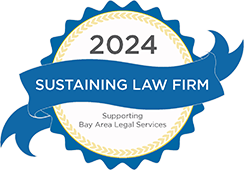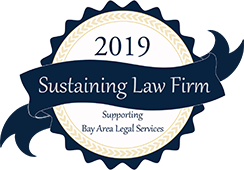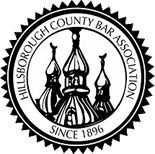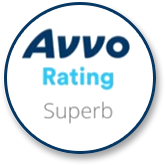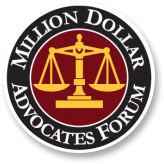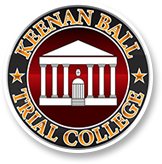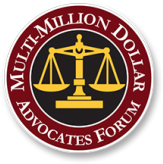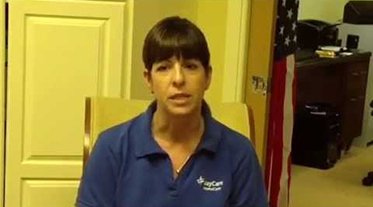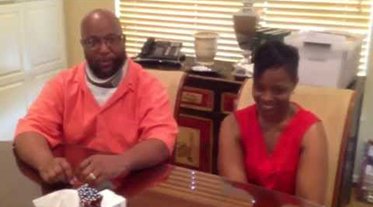Tampa Personal Injury Lawyers
Protecting & Preserving The Dignity Of All People
Tampa is one on the major cities on the west coast of Florida in Hillsborough County. Being in a big city and having a large population, it’s very common to be involved in a car accident or some other type of injury in the Tampa Bay area. If you’ve been hurt because of someone else’s negligence, you’ve been put in a horrible situation through no fault of your own. You need an ally on your side who can make sure you get the medical care you need along with compensation to make up for all the financial losses you have been made to suffer and endure. We are the Rinaldo Law Group, and our job is to do everything we can to take this bad situation and make it better for you. We work hard on every single case, as we have for the past 30 years. Our Tampa injury lawyers care about our clients, care about justice, and care about obtaining fair and adequate compensation for the harm done to you. When it’s time to stand up and make things right, our injury lawyers will be there for you as your advisors and advocates, helping you every step of the way.
In recovering over 15 million dollars for our clients and with more than 30 years in practice, we have learned that every personal injury case is unique and brings its own set of challenges and issues that must be faced. Everything we do at Rinaldo Law Group is customized to your unique needs and the unique aspects of your particular case. We get to know the physicians in the Tampa area that provide the best service for your particular needs, so that we can guide you to the best health care in your situation. We handpick our legal team based on the needs of the client, the injury involved, and the lawyers who will be defending the other party and their insurance company. We are your medical concierge, your trusted legal advisor, and your voice in the courtroom when it comes to negotiating a settlement or litigating at trial to get you the compensation you need and deserve.
Handling Accidents & Injuries Throughout Hillsborough County
Florida law recognizes the right of an injured party to recover compensation from the negligent party who caused their injury. That negligent party, however, may dispute your claim and allege that they weren’t negligent, that their negligence didn’t cause your injuries, or that your injuries are exaggerated or the result of some pre-existing condition. They may even claim that you were the negligent party, or that your own negligence contributed to the accident or made your injuries worse. If they can establish that you were even partly responsible, this reduces the amount of compensation they are liable to pay you under Florida negligence law.
It’s not just that negligent driver, doctor or business owner whom you are up against, either. The party that caused your injury will be represented by their insurance company, which is the one likely to have to pay any settlement or judgment. Insurance companies handle these claims every day and are experts in getting people to accept a low payment amount to settle the claim, or in fighting claims to deny liability. You need someone on your side who is just as experienced as the insurance company lawyers and claims adjustors. This is the level of service we provide at the Rinaldo Law Group. We stand up for your rights in any Tampa accident matter, including all of the following:
Car Accidents– Suffering a serious injury in a car accident allows you to step outside the limitations of your no-fault coverage and sue the negligent driver for the full extent of your damages. Our law firm handles all types of Tampa car accidents, including those caused by distracted driving, drunk driving, or if the driver who hit you was uninsured.
Truck Accidents – It is shocking there aren’t more semi-truck accidents on the road when you learn how often truck drivers and trucking companies ignore federal safety regulations regarding hours of service and basic truck maintenance. These failures are responsible for catastrophic injuries and wrongful death visited on the occupants of the much smaller and more vulnerable passenger vehicles in their path.
Motorcycle Accidents – Bikers enjoy the freedom of the open road, but this freedom comes at a cost, leaving them vulnerable to aggressive, reckless or distracted drivers who don’t pay attention to motorcycles on the road when changing lanes, or who misjudge a bike’s oncoming speed when making a left turn. Many people are quick to blame the motorcyclist, but we take the time to conduct a thorough investigation, and we stand up for the rights of injured motorcycle riders harmed by negligent drivers.
Bicycle Accidents – Cyclists are required to obey the rules of the road and traffic laws just like motor vehicles are, and they are entitled to respect and reasonable safety when sharing the road with cars and trucks. Whether subject to a collision or forced into a spill, bicycle riders face serious risk of catastrophic injury from negligent, reckless or aggressive drivers.
Pedestrian Accidents – Vehicles are required to yield the right-of-way to pedestrians in a crosswalk, but these days drivers are too distracted by their phones to notice pedestrians in their path. Speeding, drunk driving and distracted driving all take a toll on pedestrians hurt or killed on the streets of Tampa.
Premises Liability – Property owners in Hillsborough County have a duty to maintain their premises in a reasonably safe condition for customers, guests, or others lawfully on their property. This duty may include making periodic inspections of the premises and promptly fixing any hazards or warning the public of the danger. Providing adequate security to protect individuals from assault is another responsibility of the reasonable business or property owner.
Medical Malpractice – Doctors and other medical professionals must practice with the care and competence expected of members of their profession. Surgical errors and other medical negligence can make a serious condition even worse, or result in permanent disability or death in the worst cases. Doctors and hospitals can and should be held liable for their failures which harm us when we are at our most vulnerable.
Injuries to Children – Rinaldo Law Group has extensive experience representing minors and working with parents and children. There are unique factors to be considered when dealing with injuries to minors. Our attorneys are fully aware of these needs and are experienced in handling such sensitive cases.
Wrongful Burial/Cremation – Special laws apply to the mishandling of corpses by those entrusted with their care. The anguish suffered by bereaved family members due to this final indignity is hard to measure. We help families get through this experience by holding careless or negligent parties accountable, hopefully raising awareness and improving care for other families in the future.
Catastrophic Injury – Every personal injury negligence case is unique, and the injuries suffered vary greatly depending upon the circumstances. The most serious cases require special attention and focus; the facts are more complicated, the law is more complex, and additional care must be taken to ensure that a lifetime of additional expenses and challenges are taken into account. Our Tampa injury attorneys handle the most severe cases involving brain injury, spinal injury, burn injuries, fractures and more.
Wrongful Death – While no amount of money can replace a life wrongfully taken, the wrongful death of a loved one does impose very real costs on the surviving family members, in the form of medical bills, funeral and burial expenses, loss of income and support, and the pain that comes from the loss of spousal companionship or parental guidance. Justice requires that negligent actors be held accountable for the harm they have caused, and that a surviving spouse and children are not further burdened and made to pay for their loss.
Florida Personal Injury Law
In a Florida injury case, the burden is on you to pursue justice against the other party. This means that you must be able to prove the other party was negligent within the meaning of the law, and that this negligence is responsible for your injuries. You must also be able to document and justify the amount of compensation you are seeking, based on the present and future costs you can expect to endure. In addition, there is a deadline in Florida to file personal injury lawsuits. This is called the Statute of Limitations and Florida law states that you have four years from the date of the accident to file a personal injury lawsuit. Meanwhile, the other party’s insurance company is constantly striking back, claiming that your own negligence caused or contributed to the accident, or challenging your description of your injuries. It takes skilled, knowledgeable and experienced legal counsel to adequately represent you amidst these challenges. At Rinaldo Law Group, we are a small but powerful law firm. We don’t back down from a challenging situation, and our record of success speaks volumes regarding our determination and ability.
Contact Our Experienced Tampa Injury Lawyers
Call our office anytime to schedule your free, initial consultation. We are conveniently located just off Dale Mabry Highway and Bay to Bay Boulevard (US 92). Don’t worry if your injuries prevent you from traveling. Our Tampa injury lawyers will gladly come to you at your home, hospital room or other convenient location. Spanish language services are available, and there is never any fee unless and until we recover for you. Call 813-831-9999, or contact us online, to get started on your road to recovery.







